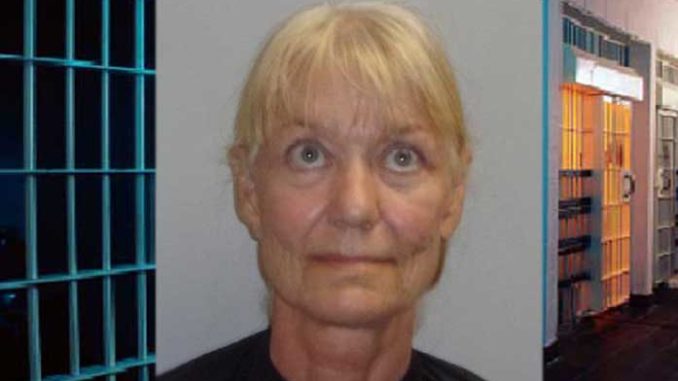
A former Cochise County court employee wants $250,000 from the administrator of a Facebook group focused on local courts, crime, and politics who she blames for the loss of her job in July just days after a video of her displaying her buttocks on the porch of her home was posted to the group’s 11,000 members.
Lynelle Gae filed the civil complaint on Sept. 23, alleging David M. Morgan violated state law by publishing an image of her in a state of nudity without her consent and with the intent to cause her harm. In addition to compensation for lost future wages, Gae is seeking punitive damages “as deemed appropriate by the court.”
The video in question was posted on June 27 to Morgan’s Cochise County Courts, Crime, Jail, Justice, & Politics Facebook group. It shows Gae walking out of her house onto a porched area where she then lifts what appears to be a nightgown and displays her buttocks in the direction of a security camera set up by a neighbor.
In January 2019, Gae became the judicial administrative assistant (JAA) for David Thorn of the Cochise County Superior Court. At the time, she was in the midst of an ongoing dispute with the neighbor, Yolanda Moots, about a fence which separates the women’s properties.
Gae won a civil action against Moots in October 2019, but a few months later the neighbors were again the subject of various reports filed by the Bisbee Police Department. Then earlier this year Gae was cited for misdemeanor criminal damage based on footage obtained from the security camera Moots had aimed toward the fence.
There were other police calls and criminal citations after that, including a June 24 citation issued to Gae by Bisbee PD after officers reviewed a video described in the police report as showing an alleged display of nudity, or mooning.
The next day Gae was arrested and booked into the Cochise County jail after officers were called back to Moots’ home to review new video of Gae allegedly engaged in another mooning incident.
It is a snippet of that video which Morgan admits posting on June 27.
Gae’s lawsuit claims she had “a reasonable expectation of privacy” on her porch, which she says is not visible from the street. She also alleges Morgan posted the video to discredit her or her boss, who is married to the chief prosecutor in the Cochise County Attorney’s Office.
At the time Morgan had a federal First Amendment retaliation lawsuit pending against County Attorney Brian McIntyre and other Cochise County elected officials.
The lawsuit also suggests Gae’s $40,000-a-year job ended July 10 because Morgan’s posting tied the mooning video to her court employment. She also contends the existence of the video on the Internet “will negatively impact Plaintiff’s search for new employment for some time in the foreseeable future…perhaps for the rest of her life.”
However, Gae’s lawsuit makes no mention of the fact she is currently the defendant in 11 criminal misdemeanor prosecutions involving the dispute with Moots dating back to May 22. It also ignores the fact Gae had twice been booked into the Cochise County jail by the time her employment ended.
Gae and her defense attorney have been ordered to appear at the Bisbee Justice Court on Oct. 22 for a pretrial conference on all 11 cases. In the meantime, she is representing herself in the civil action against Morgan, who has until mid-October to file a formal answer.
It’s unclear whether Gae has lodged a criminal complaint against Morgan for what Gae alleges is a violation of Arizona Revised Statute 13-1425(A), which makes it a Class 4 felony to disclose images depicting nudity by electronic means without the consent of the person depicted.
The statute reads in part that it “is unlawful for a person to intentionally disclose an image of another person who is identifiable from the image itself” if the person in the image is depicted in a state of nudity and “the person has a reasonable expectation of privacy.”
The person depicted must also show the image was disclosed “with the intent to harm, harass, intimidate, threaten or coerce the depicted person.” For purposes of the statute, the term “harm” means physical injury, financial injury, or serious emotional distress.
